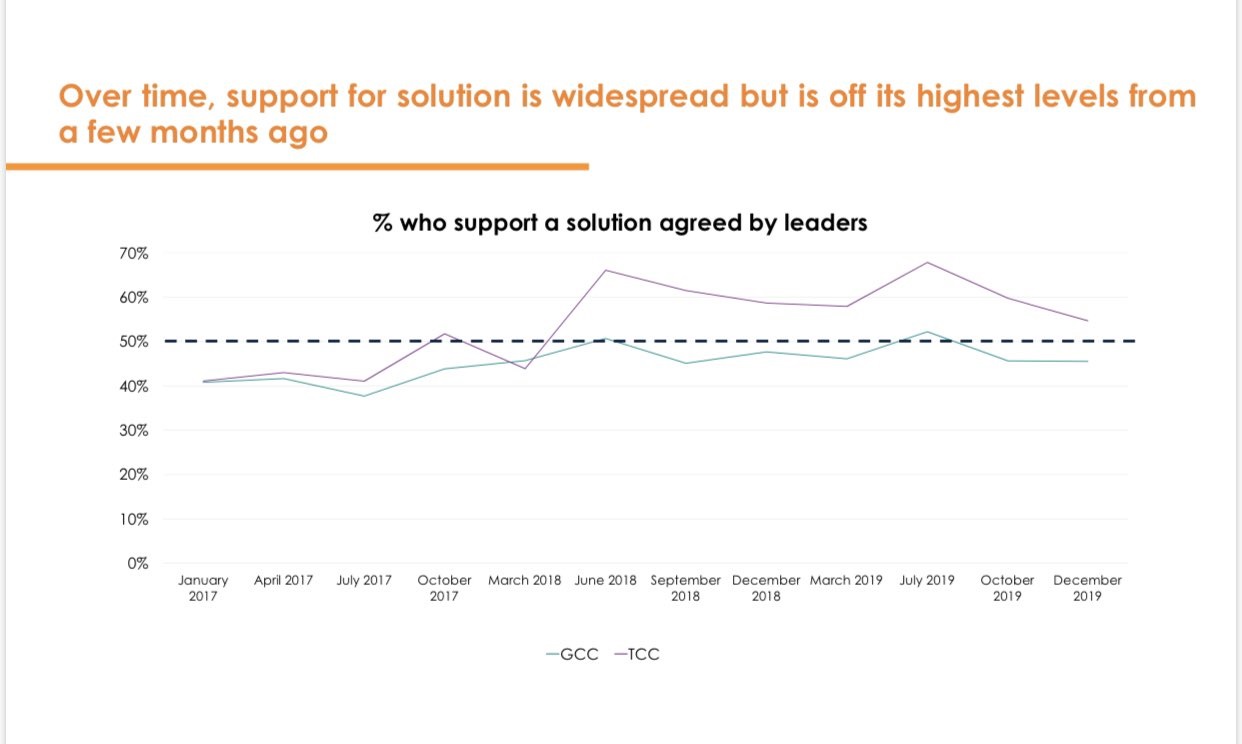
Newsroom
Support for a solution remains strong, contact between Greek Cypriots and Turkish Cypriots is at its uppermost level and demand for economic contact between the two communities is high, the latest, the February 2020 Pulse survey showed.
The survey, prepared on a quarterly basis since 2018 by the World Bank and funded by the EU, is undertaken in support of the economic convergence of the Turkish Cypriot community (TCC) and as part of the reunification process efforts in Cyprus.
According to the latest data published on Tuesday, both communities want a solution though many are undecided, while a bi-zonal bicommunal federation (BBF) is preferred to the status quo, especially by older generations who experienced a life with both communities side by side.

61 percent in the GCC and 71 percent in the TCC support a solution
One in four respondents in both the Greek Cypriot Community (GCC) and TCC is undecided or did not answer in the survey, the data for which was collected in December 2019.
Of the remaining respondents, 61 percent in the GCC and 71 percent in the TCC support a solution. Though support is high, a decrease was recorded compared to July 2019.
Regarding the form of the solution that is preferred, GCC respondents stated that they prefer a BBF over the Status Quo, though preference in the TCC community was equal for both scenarios.

According to the data, only one in five trust policy makers, while more civic inclusion in the Cyprus peace process was one of the top three requests by respondents.
The report noted that “despite the strong support for a solution brought by the leaders, much can be done to enhance trust across the board in both communities. Addressing low levels of trust is urgently needed – it is an island wide issue both across and within communities (with some notable exceptions in the TCC)”.

The report also showed that “more people than ever are interacting across communities,” as contact between people from the two communities increased by 30 percent in December 2019 relative to December 2018. Though contact was less prevalent among women in December 2018, by December 2019 it was the same as for men.
Importantly, the survey showed that people are open to explore economic opportunities in the other community. One in for in the GCC and one in two in the TCC either work or would consider it. According to the survey, “the main reason behind it is higher incomes.”
Men from the GCC are more willing to work in the TCC than women (30 percent versus 18 percent). One in four respondents from the TCC works in the GCC, while another one in four would be willing to do so, especially younger people.
































